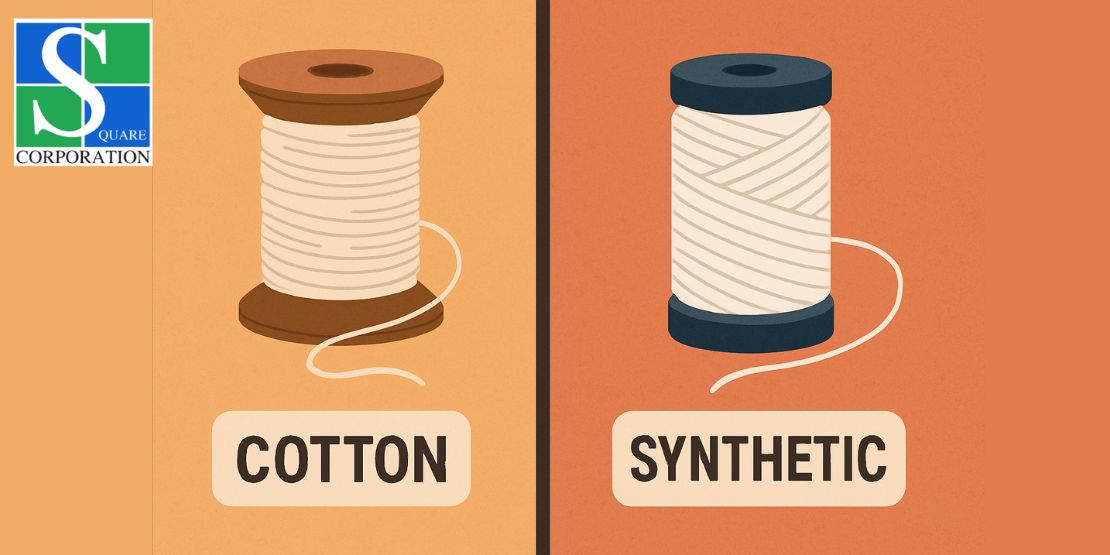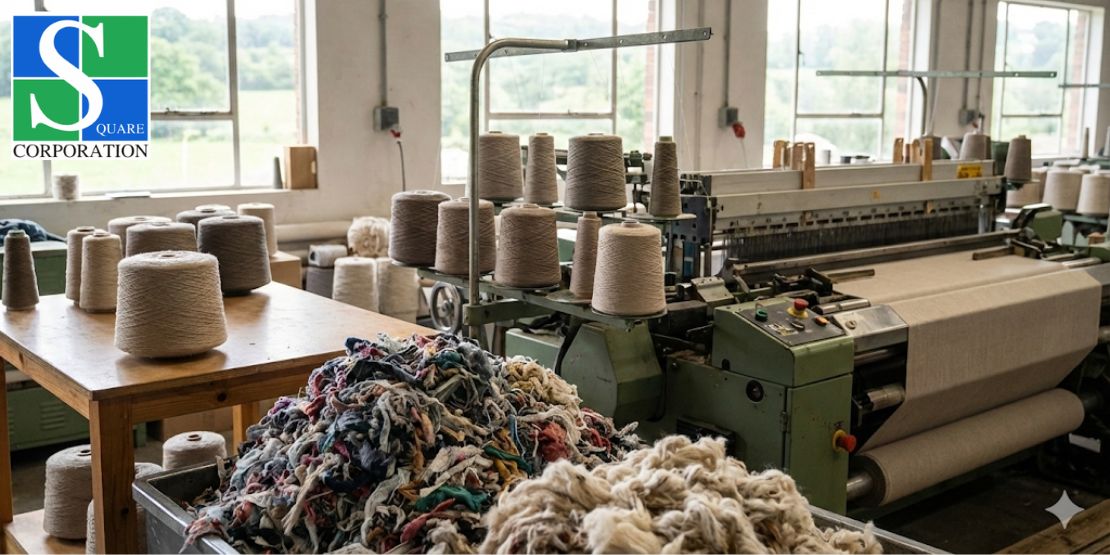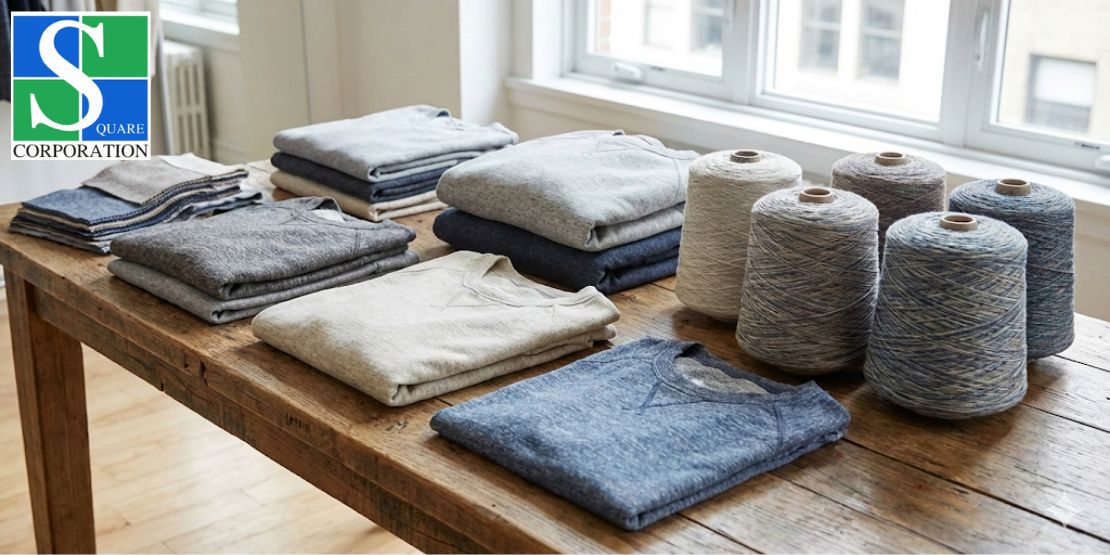20 January, 2026 | by Admin
Cotton Thread vs Synthetic Thread: An Industrial Approach
20 June, 2025 | by Admin
The textile and garment manufacturing industry continuously experiments with new and innovative garment manufacturing processes that can save time and reduce costs while providing premium-quality products. In such cases, reliable fabric manufacturers in India always strive to use premium-quality cotton and synthetic threads in the fabric manufacturing process. Choosing cotton or synthetic thread is not just about material preference for industrial use. It is essential in production methods, performance characteristics, and different industrial applications.
Maximum reliable fabric and garment manufacturers have preferred to use cotton thread for centuries; synthetic threads are vital for mass production, cost efficiency, and durability. Through this blog, we will discuss the manufacturing process, functional properties, and applications of cotton and synthetic threads in various industrial settings.
Origin and Usefulness of Cotton Threads
Garment manufacturers have been using cotton thread for over 7,000 years, with the advent of machine-spun cotton production. Natural cotton fibers are spun and twisted into thread, whereas traditional cotton thread is treated with caustic soda to enhance dye absorption, strength, and luster. Now, let’s discuss the usefulness of using cotton threads for industrial usage-
- The soft and matte finish criteria of cotton threads are ideal for manufacturing natural fabrics such as cotton, wool, and linen.
- Cotton threads have excellent heat resistance capacity that does not melt under high ironing temperatures.
- Cotton threads are dye-friendly and absorb dye uniformly, making them ideal for solid-colored garments.
The Usefulness of Synthetic Threads in Modern Industrial Usage
Synthetic threads, such as nylon and polyester, have become a vital component of the modern textile and garment manufacturing industry. Due to their impressive strength and cost-effectiveness, synthetic threads are gaining popularity for various industrial applications. let’s discuss them in detail-
- Due to the higher tensile strength, synthetic threads can withstand repeated stress and abrasion.
- Synthetic thread is renowned for its UV resistance and mildew resistance, which are vital for outdoor wear.
- Due to minimal shrinkage, synthetic threads retain their original shape after multiple washes.
Cotton Threads Manufacturing Process
Reliable fabric manufacturers consistently strive to utilize premium-quality spinning mills in Punjab to produce high-quality cotton threads in a significant manner. Let’s discuss it in detail-
- Fiber selection – Fabric manufacturers constantly strive to use long-staple cotton to produce high-quality cotton threads.
- Combing – After selecting the fiber quality, it is cleaned, aligned, and converted into yarn.
- Mercerization – This process is vital for improving the strength and dye uptake of the cotton threads.
- Plying – In this step, multiple cotton yarns are twisted together to enhance the durability of the cotton threads.
Synthetic Thread Manufacturing Process
Apart from cotton thread manufacturing, the synthetic thread manufacturing process is also vital for producing high-quality garments. Let’s discuss the manufacturing process of synthetic threads.
- Polymer extrusion-It is the first step, where melted polyester is forced into a spinneret to create filaments.
- Drawing – In the 2nd step, filaments are stretched for strength and textured for bulk.
- Lubrication – the resin coatings on synthetic fibers can improve abrasion resistance and sewing performance.
Industrial Application of Cotton and Synthetic Threads
In this segment, we will discuss the industrial application of cotton and synthetic threads. Let’s discuss them in detail-
- Denim and workwear industry – Cotton threads are useful for heritage and jeans manufacturing. Whereas polyester synthetic threads are beneficial in this industry due to their impressive durability.
- The outdoor gear industry– Utilizes polyester and nylon threads for manufacturing outdoor gear due to their impressive UV resistance.
- Dyeing and custom finishing industry – Synthetic threads are useful for garment manufacturing in this industry because they can resist dye and remain visible.
- The embroidery industry– Utilizes cotton threads for their matte finish look.
Conclusion
There must be a constant debate between cotton and synthetic threads due to their superior quality and impressive industrial applications. If you come from a specific industry, you must make good decisions between synthetic and cotton threads. However, if you want premium-quality cotton thread or yarn, you must contact Square Corporation for the best-quality cotton threads. Our premium-quality cotton yarn surely meets your industrial requirements.
Related Posts
15 January, 2026 | by Admin
A Comprehensive Guide to Choosing the Right Fabric for Your Clothing...
10 January, 2026 | by Admin







